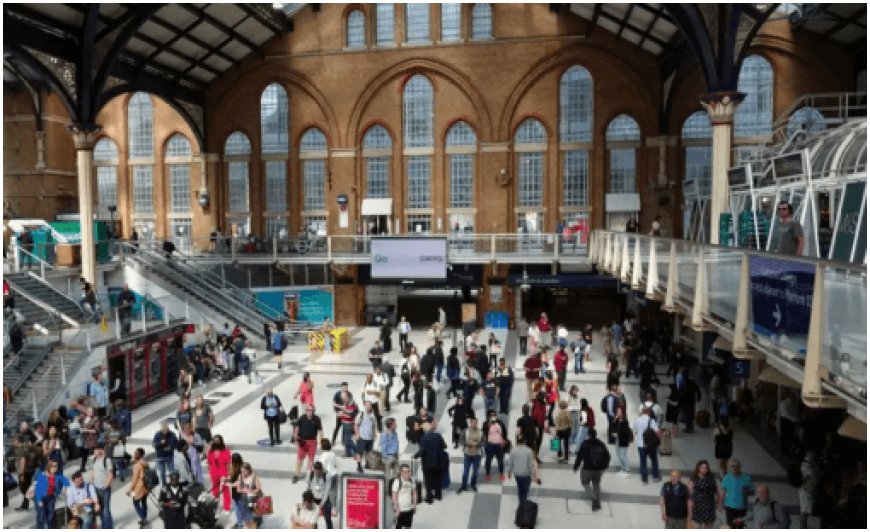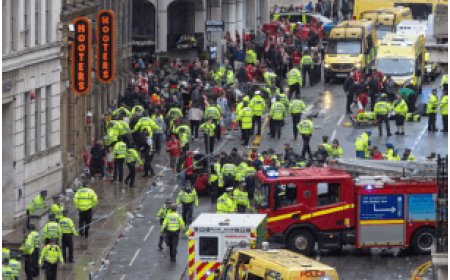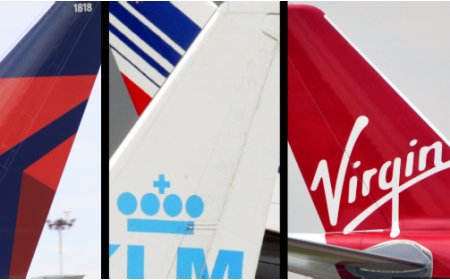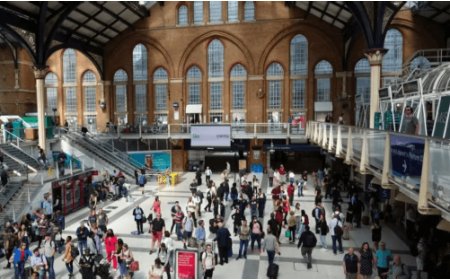European Travel Strikes: Travelers across Europe face potential disruptions due to strikes, including French rail workers and UK airport staff, affecting services during the Easter holiday season.
European Travel Strikes: Travelers across Europe face potential disruptions due to strikes, including French rail workers and UK airport staff, affecting services during the Easter holiday season.

European are bracing for widespread disruptions as a wave of strikes threatens to upend holiday plans during the busy Easter travel season.
With French rail workers and UK airport staff among those participating in industrial action, transport services across the continent are expected to face delays, cancellations, and logistical chaos in the coming days. The timing of the strikes, coinciding with one of the most popular travel periods of the year, has drawn sharp reactions from the public, businesses, and travel authorities alike.
In France, rail workers have announced a series of coordinated strikes aimed at drawing attention to long-standing grievances over pay, working conditions, and pension reforms. The strikes, organized by major trade unions, are expected to significantly impact national rail services, including the TGV high-speed network, regional TER lines, and international trains such as the Eurostar. Travelers heading to and from France could find themselves caught in delays or forced to find alternative routes, with operators warning of reduced service schedules and overcrowded trains.
The French National Railway Company (SNCF) has issued alerts, asking passengers to check their itineraries ahead of time and avoid non-essential travel during the peak strike days. The action comes amid growing frustration from union leaders who argue that inflation has outpaced wage increases and that proposed changes to pensions could significantly affect workers' futures. Despite attempts by government negotiators to ease tensions, talks have thus far failed to produce a breakthrough, and union representatives have warned that further strikes could follow if demands are not met.
Meanwhile, in the United Kingdom, airport staff—including baggage handlers, security personnel, and ground crew—have also announced industrial action at several key transport hubs. Among the Europe airports affected are London Heathrow, Manchester, and Birmingham, which together handle millions of passengers annually. The strikes are expected to cause delays at check-in counters, longer security lines, and possible baggage handling backlogs. Airport authorities are scrambling to put contingency plans in place, including hiring temporary staff and urging travelers to arrive well in advance of their flights.
The dispute in the Europe also centers on wage increases, job security, and working conditions, with unions highlighting the increased workload and stress experienced by airport staff, particularly during high-traffic periods. Workers argue that while passenger numbers have returned to or exceeded pre-pandemic levels, compensation has not kept pace with the rising cost of living. Talks between union leaders and airport management have yet to yield a resolution, raising concerns that industrial actions could intensify if no progress is made in the coming weeks.
Beyond France and the UK, ripple effects are expected across the broader European transport network. Delays in rail and air travel in key hubs can easily disrupt interconnected services throughout the continent. Countries that rely on cross-border travel—such as Belgium, Germany, and the Netherlands—may see a knock-on impact, especially on international train routes and connecting flights. Tour operators and travel agencies are fielding calls from concerned customers, many of whom are now scrambling to rearrange itineraries or cancel plans altogether.
The Europe Easter holiday season is a crucial time for the travel and tourism industry, which has only recently begun to recover from the financial devastation of the COVID-19 pandemic. Airlines, hotels, and local tourism operators had hoped for a surge in business this year, but ongoing strikes threaten to dampen consumer confidence and curtail spending. For travelers, the strikes add a layer of uncertainty to what is normally a festive and relaxing period, especially for families, students, and retirees hoping to take advantage of the spring break.
Governments of Europe in both France and the UK are under increasing pressure to intervene, though the balance between respecting labor rights and ensuring public service continuity remains politically sensitive. In France, President Emmanuel Macron’s administration has faced repeated backlash over labor reforms, and the railway strikes are the latest in a series of worker-led protests. In the UK, the government has faced similar criticism over its handling of worker demands across multiple sectors, including healthcare, transportation, and education.
For now, travel advisories are being issued across Europe, with many national rail operators and airlines encouraging passengers to keep a close watch on schedules, sign up for service alerts, and prepare for last-minute changes. Some airlines have offered rebooking or refund options for affected flights, while train operators are working to accommodate passengers on alternative services where possible. Still, with transportation hubs bracing for potentially record crowds during the Easter weekend, even small disruptions could quickly snowball into widespread delays.
The Europe broader implications of these strikes extend beyond travel inconveniences. They reflect growing labor unrest in several European countries, where workers are increasingly vocal about economic disparities and job security in the post-pandemic landscape. As inflation remains a persistent challenge and public services strain under increasing demand, labor unions are seizing the moment to push for change—though at the cost of short-term public disruption.
What's Your Reaction?
 Like
0
Like
0
 Dislike
0
Dislike
0
 Love
0
Love
0
 Funny
0
Funny
0
 Angry
0
Angry
0
 Sad
0
Sad
0
 Wow
0
Wow
0








































